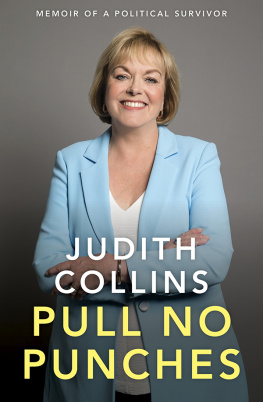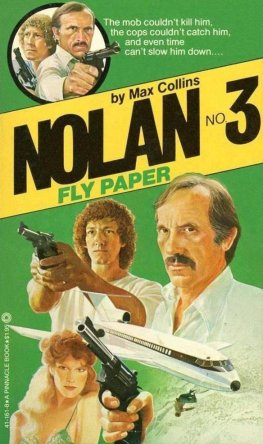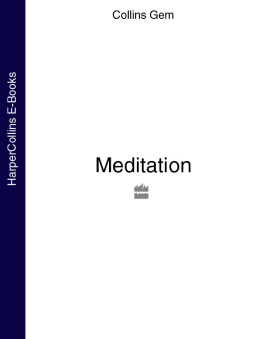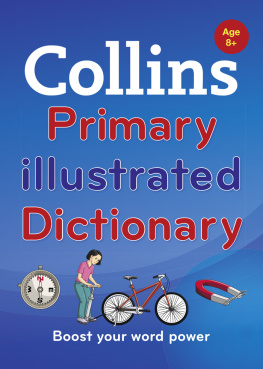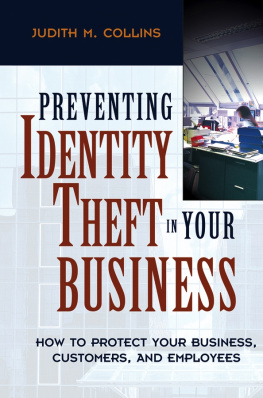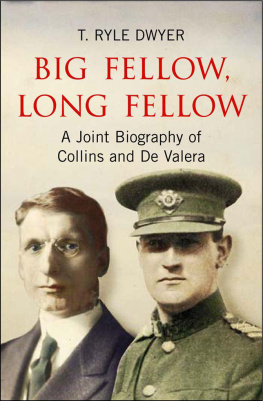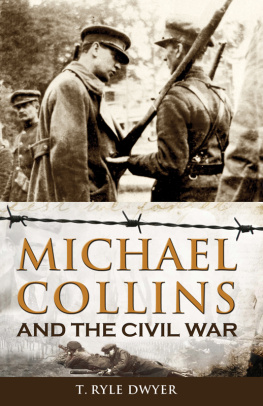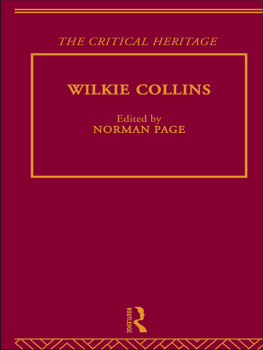First published in 2020
Text Judith Collins, 2020
All rights reserved. No part of this book may be reproduced or transmitted in any form or by any means, electronic or mechanical, including photocopying, recording or by any information storage and retrieval system, without prior permission in writing from the publisher.
Photographs in the colour section are from the authors private collection.
Allen & Unwin
Level 2, 10 College Hill, Freemans Bay
Auckland 1011, New Zealand
Phone: (64 9) 377 3800
Email:
Web: www.allenandunwin.co.nz
83 Alexander Street
Crows Nest NSW 2065, Australia
Phone: (61 2) 8425 0100
A catalogue record for this book is available from the National Library of New Zealand.
ISBN 978 1 98854 751 0
eISBN 978 1 76087 465 0
Design by Kate Barraclough
Cover photograph: Guy Coombes
To my parents, Percy and Jessie Collins, who gave me the gift of life and the resilience to never give up
CONTENTS
I have always wanted to write a book. Early in 2019, when I started toying with the idea of actually doing it, I asked someone who has written many books, Mary Langridge, about how she went about writing, how to secure a publisher and all the things I needed to think about. I listened and then I tried to write a chapter. She looked at it and gave me some advice: she said to be me.
I knew that I had to write my own book. It had to be in my words, my phrasing. I had to type every word. That way my book would be authentically me.
I have written beforeessays, newspaper columns, research papers for university, policy papers. But never did I feel so attached to anything I have written as I do to this book. It has been the most cathartic experience.
I have enjoyed it so much that I will keep on writing.
I am mindful that this is my story and my interpretation. I have deliberately kept back names where I feel they could cause undue embarrassment for others. I have retained the confidential nature of both caucus and Cabinet and have used, when needed, comments published by the media. I have endeavoured to allow the facts to speak for themselves.
I have chosen to correct the public record where untrue statements or spin have been left to take hold. Some facts will surprise.
It has been mildly amusing to read the somewhat premature reviews of what is in this book by those who have never read it. This is a positive book. It is an account of who I am, where I come from and where I think we should be heading. This is a story of opportunity, of adversity and resilience. It is my story.
ONE
DECISION TIME
It was 1999, an election year. A friend of mine, Annabel Young, who was a National Party MP, was keen to get me involved in the party. I had met a few MPs through my work as a board member of the Law Society and also from my time as president of the Auckland District Law Society. I thought National was going to lose the 1999 election. People were tired of National. Labour under Helen Clark, who had taken some years to connect with voters, was more likely to win.
There is nothing quite like a lost cause to get me interested in it. The MPs I knew were all hard-working people who impressed me with their determination to improve New Zealand. The National Partys principles of economic and personal freedom coincided with mine so I joined the party in Epsom. I was soon involved in fundraising and in committees. I had no intention of being an MP and was just happy to volunteer.
Many Aucklanders thought that National wasto be brutalall about staying in power and not about keeping the power on.
National lost the election. It was easy to predict because of the way people spoke of National. During Aucklands electricity crisis the previous year when power was lost to the CBD the Government failed to look as if it cared or even knew what to do. By now, having ejected Prime Minister Jim Bolger for New Zealands first female PM, Jenny Shipley, and losing the support of Winston Peters New Zealand First party on the way but keeping some of Peters former MPs as ministers and trying to keep on board the vote of the ex-Alliance MP Alamein Kopu, quite a few New Zealanders seemed to think that National was toast. I certainly did. Many Aucklanders thought that National, which was being kept in Government by a group of MPs who had split from the parties that had got them into Parliament, wasto be brutalall about staying in power and not about keeping the power on.
Politics is a bit like the property market. The time to get involved is when others are fleeing. Thats when we can make the biggest difference. So, I got involved.
The first thought of the new Government of Labour led by Helen Clark and the Alliance led by Jim Anderton seemed to be to raise taxes. They did exactly that. That spurred on my work for National. There is a weird time when a political party that goes from Government into Opposition cannot quite believe what has happened. It is really akin to the first stage of grief. And so it was for National. The first woman PM of New Zealand, Nationals Jenny Shipley, was replaced by the second woman PM, Labours Helen Clark, and then had to put up with comments from the left that Clark was the first elected woman PM. The unwillingness to recognise that the PM was the leader of her party and was leader because she was elected by her MP colleagues was petty and unnecessary.
Jenny Shipley stayed on as Leader of the Opposition but it was clear to some that she was unlikely to win over New Zealanders and oust Helen Clark. National has a reputation for removing any leader who fails in an election, and the knives certainly seemed to be out for Jenny. National volunteers were openly speculating about when her deputy Bill English would launch a coup. Audrey Young in the New Zealand Herald summed up the situation: Bill Englishs pledge of loyalty to Jenny Shipley is both meaningful and meaningless. National was polling at a very respectable 38 per cent, but it was clear that Jenny was on notice. Caucus went on to choose Bill English to replace her in October 2001.
The polls made an initial gain and then election year 2002 started with all sorts of things going wrong for the Clark Governmentbut nothing as bad as what was happening in National. The Alliance party led by Jim Anderton was splintering, but so was National. The much-heralded renewal of National under Bill English left some MPs and volunteers feeling distinctly bruised and unwanted. Thats never good going into an election. Warring factions are death to electoral chances. To make matters worse, the Serious Fraud Office was investigating National over campaign donations.
If Warren was determined to stand, then I would rethink my stance. He said he was still thinking about it. To me, that was a green light.
Electorate boundaries were being redrawn (as they are after each census) and a new seat of Clevedon was created in south-east Auckland. Annabel Young suggested that I speak with Nationals northern regional chair, Scott Simpson, to see if there would be any point in putting my name forward for selection. Scott seemed keen for me to do so. I knew the party president Michelle Boag from fundraising and spoke to her. She was surprised but supportive. I met with the electorate chair and secretary. I was advised that Warren Kyd, the sitting MP for the Hunua electorate (which was being abolished in the boundary change), was still deciding if he would stand for the Clevedon selection. I knew Warren from his National Party small-business group so I phoned him and told him that I was considering standing but I would need to know if he was standing. Implicit in my asking was that if Warren was determined to stand, then I would rethink my stance. He said he was still thinking about it. To me, that was a green light.

